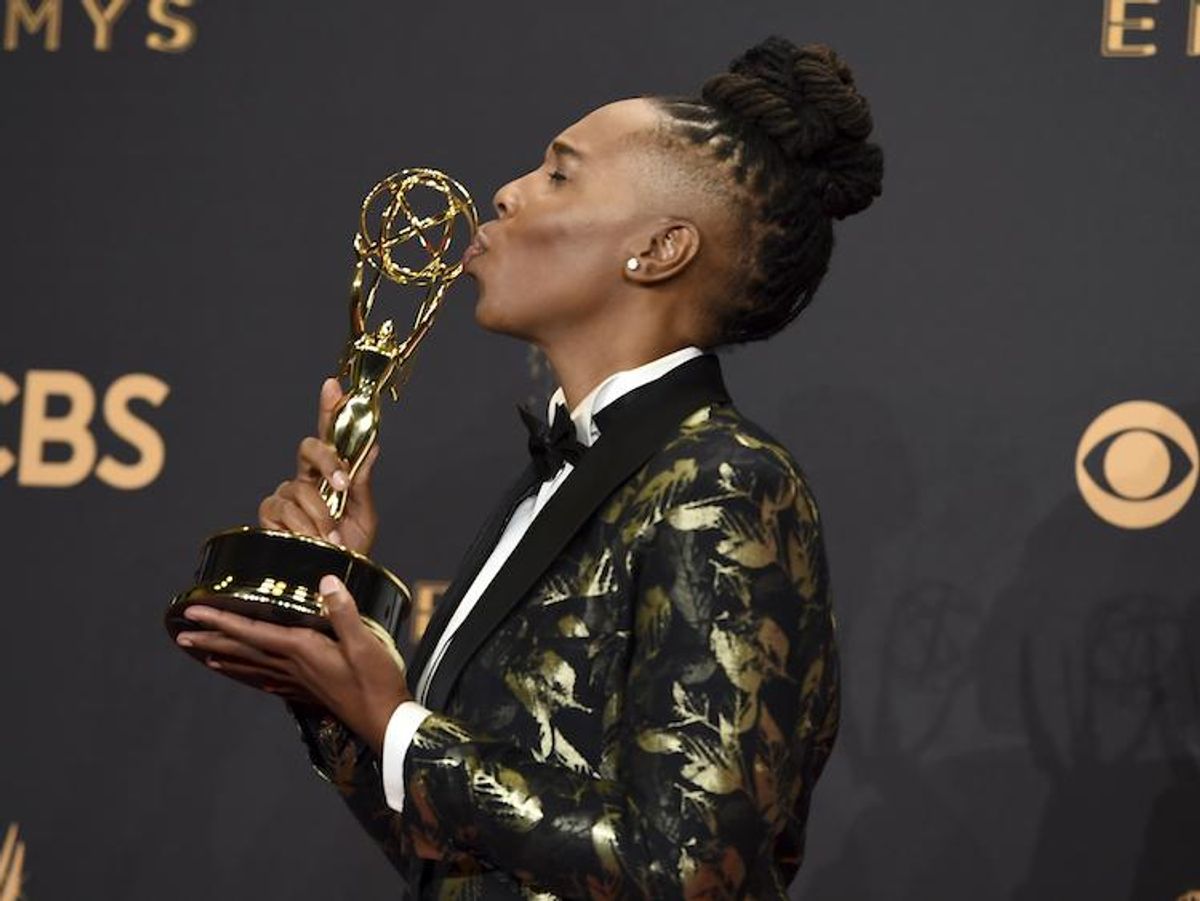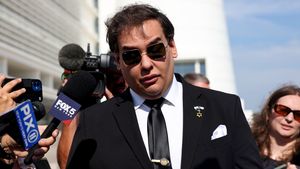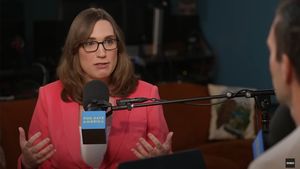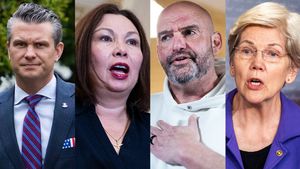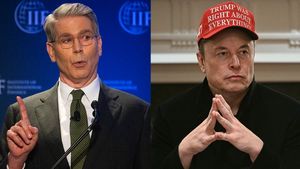Growing up in the '90s, I took the proliferation of faces that looked like mine for granted. There were myriad representations of black lives mattering on television and in the movies, so much so, I thought that was how it always was and how it always would be. And then the Bush years happened and I grew to realize the significance of The Cosby Show and what it wrought--the cross-cultural appeal of the black family.
The '90s saw an explosion of black representation both in film and on TV, but the following decade resulted in a niching of these properties, as Fox turned away from the shows that had made its name in its early days--Martin, In Living Color, Living Single, and Roc-- and black shows got relegated to the new second-tier networks,The WB and UPN, which would eventually merge into The CW. The quality of the shows declined and the movie industry, which is never one to lead by example, churned out middling fare that was nonetheless feverishly devoured by audiences starving for the representation to which they had grown accustomed.
But the halcyon days of '90s black TV and film left an impression. The current wave of brilliant, defiant, groundbreaking work by and featuring people of color is a direct result of that decade. At the forefront of this wave is Lena Waithe, who recently made history at the Emmys for co-writing the Master of None episode "Thanksgiving," based on her own experiences coming out to her family.
Related | Master of None Had the Best Coming Out Episode in Recent TV Memory
Waithe says of herself and the women who stand by her in this cultural moment, "We all kind of grew up being inspired by similar things, watching A Different World or The Cosby Show and seeing movies like Eve's Bayou, Love & Basketball, Love Jones, things like that. I feel very blessed to be part of that generation where growing up it wasn't abnormal to see a bunch of black shows that had different voices and different takes."
She continues, "Family Matters was different than Fresh Prince, Fresh Prince was different than The Parent 'Hood. They all had a different point of view and that's where we are now. Atlanta is not Insecure, Insecure is not Dear White People, Dear White People is not Chewing Gum. There are a lot of different voices that deserve to be heard and are all valid."
Related | Dear White People Star Deron Horton on Bringing New Black Narratives to TV
Waithe, however, stresses the importance of the quality of representation, not just the quantity: "Yes, it's fine to just have black people on TV, but if it's not inspiring or if it's not sticking to your ribs, then what's the point of it? It's like Do the Right Thing inspired John Singleton to make Boyz N the Hood which I think inspired the Hughes Brothers to make Menace II Society. Good art begets good art."
Inspiring depictions of the black experience is one of the themes behind the Museum of Modern Art's new film series, "Black Intimacy," kicking off today, October 3, and running through October 16. The series explores the ways in which black familial, romantic, and platonic relationships have been portrayed on-screen, represented through 16 films, two shorts, and a television episode. That television episode is Waithe's "Thanksgiving," which will be screened in conjunction with 1996's The Watermelon Woman, and will include a Q&A with Waithe on October 10 at 6:30pm.
Directed by Cheryl Dunye, The Watermelon Woman follows a lesbian filmmaker, on her quest to make a film about a forgotten black actress while dealing with complications in her personal life.
"Her friend is frustrated by her romantic involvement with a white woman, so [the protagonist] is navigating those spaces but also trying to make this film happen," explains "Black Intimacy" curator Adeze Wilford. "I thought it would be interesting to have this conversation with a story of coming out--how you navigate being an adult, being out, being in a relationship, versus getting to the point where you're comfortable with your family knowing who you are and bridging that relationship gap."
Below, Lena Waithe discusses her historic Emmy, her involvement with MoMA's "Black Intimacy," the big year she has had, and the big year she has in store.
OUT: How has winning the Emmy changed your life so far?
Lena Waithe:You know it's interesting, I think what it does is less about changing my life--I'm the same person--but what I think it did was solidify the moment in time and in my career. And because of the simple fact that I was the first African-American woman to do it, it solidified a moment in history, which is amazing. But for me, it was sort of a vindication of this 11-year journey. I look at it like, I still gotta keep working, I still gotta keep grinding. I don't rest on it at all. I sort of put it on the shelf--I feel honored, but okay, back to work. I don't look at it like, I'm good--to me, it's just the beginning.
What are your next projects?
I'm definitely trying to get a comedy series on TV: Twenties, a thinly-veiled version of my 20s when I first moved to Los Angeles. It's about black girls living in L.A.; the lead happens to be a queer girl, which is revolutionary in itself because we haven't seen that. I made a pilot presentation for it online and a lot of people saw it and have been asking about it ever since. They should know that I'm working on it and trying to get it done.
I wrote a feature, which I can't say anything about--I like to think of it as protest art, but, you know, stay tuned; that's all I'm gonna say about it. And then The Chi is coming out on Showtime early next year. It's a drama about the southside of Chicago and the people that live there. It's the first drama I've ever written and I hope people dig it. And I can say I'm in [Steven Spielberg's] Ready Player One, but I can't say who I'm going to play, but that'll be out in March next year. We have some stuff cooking so it'll be an interesting rest of the year and an interesting new year.
Amazing. And how'd you get involved with the "Black Intimacy" series?
You know, they reached out, I heard about it, I thought it was really dope. I'm a big champion of [black intimacy] because I feel when you don't see it--here's the thing, the most human thing on the planet is intimacy, so when you don't see black people being intimate with each other it's a way of saying we're not human. The "Thanksgiving" episode reflects a version of that. I was honored to be asked to be included and I feel really happy to be a part of the exhibit.
Your Emmy speech was so powerful and eloquent and articulate. Did you have that planned or did it come off the cuff?
No, Aziz was nervous for me to write something down and I'm not a believer in that. I don't like to be presumptuous--I don't know that I'm gonna win, [laughs], I don't want to be like, So here's my list. But look, there's no shade to anybody that does that, I totally get it, you're like completely frazzled up there, but I really wanted to speak from the heart.
I wanted to say something about our community, particularly the queer community, to share that with them because that's what the story was really about: coming out--that's a moment that we all share, that we know we're different, we know we're not like everybody else--and coming to terms with that journey. Like I said, it's bigger than me, it's bigger than one episode of television; to me that was a moment to really see people in the community and tell them I see them and tell them the things that make us different are actually what makes us special. If I wasn't a queer black woman, I don't know if I'd be standing on that stage. I hoped that they could see through me that when you tell your story, when you live your authentic life, only good things will come from it.
For more on MoMA's "Black Intimacy" series, click here.
